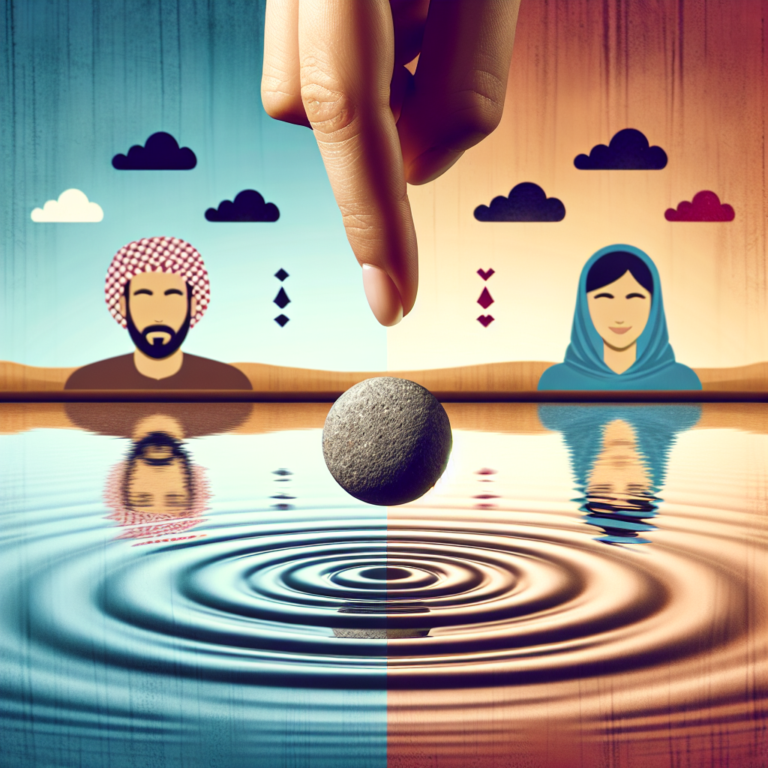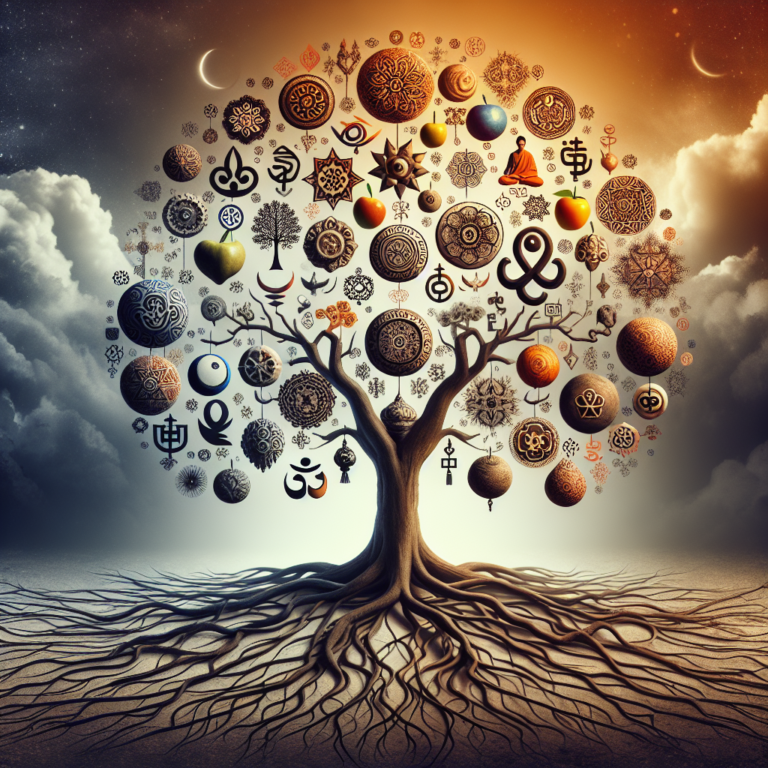Karma is a concept that transcends cultures and belief systems, often summarized by the adage “what goes around comes around.” While this idea predominantly arises from Eastern philosophies, particularly Hinduism and Buddhism, the implications of karma stretch into the very fabric of our relationships. The interactions we have with others, the kindness we show or neglect, and the conflicts we foster have far-reaching effects—not just on the immediate relationships but also on our broader social circles and communities. Understanding the ripple effect of karma can empower us to cultivate healthier connections with those around us.
The Essence of Karma
At its core, karma refers to the actions we take and the consequences those actions generate. In a relational context, karma interprets our behavior toward others and how that behavior influences the dynamics we share. Positive actions can foster trust and compassion, while negative actions can lead to discord and resentment. This reciprocal dynamic makes relationships much more than mere chance encounters; they become a continuous loop of action and reaction.
The Ripple Effect Explained
The ripple effect can be understood as a series of consequences stemming from an initial action. Much like dropping a pebble into a pond creates concentric circles of ripples, our interactions trigger a chain of relationships that extend beyond the immediate moment.
1. Interpersonal Relationships
The most immediate concern in the ripple effect of karma is the health of interpersonal relationships. When we treat others with respect, kindness, and compassion, we cultivate a relationship built on trust. This not only strengthens our bond with the person directly involved but also influences how they treat others.
For example, imagine providing support to a friend during a challenging time. Your kindness may inspire them to show compassion to someone else in need. In this way, genuine acts create a ripple effect, improving the emotional landscape of your immediate social circle.
2. Community Impact
The impact of karma doesn’t stop at individual relationships; it extends to the broader community. When kindness is practiced within a community, it fosters a culture of support and assistance. In a workplace setting, for instance, one employee’s initiative to mentor a newcomer can encourage a supportive environment among colleagues.
Conversely, negative actions can lead to an equally widespread impact. For instance, if someone engages in gossip or manipulation within a work team, it can breed distrust and tension, affecting everyone’s performance and satisfaction.
The Cycle of Forgiveness and Healing
Karma is often associated with justice, but it is also deeply intertwined with the concepts of forgiveness and personal growth. When conflicts arise, how we choose to handle those situations determines the future quality of our relationships.
1. Transformative Power of Forgiveness
Forgiveness is pivotal in breaking the cycle of negative karma. Holding onto grudges creates a toxic environment for everyone involved, including yourself. By choosing forgiveness, even when it feels undeserved or unwarranted, you create space for healing and restoration. This choice not only benefits your own mental well-being but also influences others around you to pursue forgiveness in their conflicts.
2. Growth Through Challenges
Challenges and misunderstandings often serve as pivotal moments for growth within relationships. When approached with empathy and an open heart, conflicts can be transformative experiences that lead to deeper connections. Engaging in constructive dialogue can prevent misunderstandings from spiraling into resentment, allowing both parties to emerge stronger.
The Role of Self-Karma
While karma emphasizes interpersonal relationships, it is imperative not to overlook self-karma—the idea that our actions toward ourselves influence our capacity to interact with others. Self-care, self-respect, and self-love form the foundation for healthy relationships. When we treat ourselves with kindness, we develop a reservoir of compassion that can be shared with others.
For instance, a person who prioritizes their well-being is likely to be more patient and understanding in their relationships, manifesting positive karma. On the other hand, someone trapped in self-criticism and neglect may project negativity onto those around them, creating a toxic environment.
Practical Applications of Karma in Relationships
Understanding how karma shapes our relationships can empower us to be more mindful in our interactions. Here are a few practical applications:
Practice Gratitude: Cultivating gratitude not only enhances your own happiness but also encourages kindness toward others. A simple thank you can foster goodwill and a positive ripple effect.
Engage in Active Listening: Listening to others validates their feelings and experiences, laying the groundwork for trust and respect.
Encourage Positive Actions: Share kindness openly. Small gestures can be contagious—buy a coffee for a coworker or compliment someone’s efforts.
Address Conflicts Positively: When conflicts arise, strive for understanding rather than anger. Approach discussions with empathy, and be willing to practice forgiveness.
- Self-Reflection: Regularly reflect on your actions and their potential consequences. Engage in practices that promote self-love and mental well-being, ensuring you aren’t inadvertently sharing negative energy with others.
Conclusion
The idea of karma as a moral law of cause and effect deeply influences our relationships. The consistent decisions we make to embody kindness, patience, and understanding create a ripple effect that nurtures the environment around us. Conversely, negative actions not only impact our immediate relationships but can also wreak havoc on broader communities. By embracing the tenets of karma and fostering positive connections, we can create a wave of compassion and support that resonates far beyond our individual interactions.
FAQs
1. Can positive karma help heal broken relationships?
Absolutely! Positive karma, embodied through acts of kindness, understanding, and forgiveness, can facilitate healing and restoration in relationships. It encourages open communication and rebuilding trust.
2. What if I feel others are constantly negative towards me?
You can control how you respond to negativity. Maintain positivity within yourself, and employ empathy when interacting with negative individuals. Their actions should not dictate your reality.
3. Is there a way to break negative karma patterns?
Yes, breaking negative karmic patterns involves mindfulness and intentional action. Commitment to self-reflection, open dialogue, and conscious choice can help you pivot towards positive outcomes.
4. How does self-karma relate to my interactions?
Your treatment of yourself impacts your emotional health, which directly affects how you engage with others. Cultivating self-love and care enables you to approach relationships with compassion and understanding.
5. Can karma affect professional relationships?
Yes, karma plays a significant role in professional settings. Positive actions can lead to collaborative environments, while negative behaviors can foster distrust and conflict among colleagues.
It seems like your message was cut off. Could you please provide more details or specify what you’re looking for with the prompt? Whether it’s a writing prompt, a question, or something else, I’m here to help!, #Ripple #Effect #Karma #Shapes #Relationships, #Ripple #Effect #Karma #Shapes #Relationships, 1734308285, the-ripple-effect-how-karma-shapes-our-relationships





